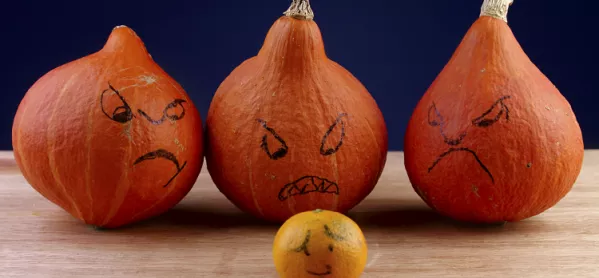Social media: one of the greatest things to have happened to humanity? Or the bane of all our lives?
This debate would certainly entertain many staffrooms. While there is probably no wrong or right answer, most teachers would probably agree that far too many youngsters think the people they “Facebook” or “Snapchat” on a minute-by-minute basis are genuinely their “friends”.
They may think they are friends, but often they are only really acquaintances or even strangers, and when they start lobbing in cruel and hurtful comments, young people are ill-equipped to cope.
As an old man, I recognise the wisdom of “treating people how you would want to be treated”: but it would appear this simply does not translate to a mobile phone or tablet.
It seems to me that these days too few children understand how to bond, how to make friends and, of course, how to be one. Can we correlate this with the rise in wellbeing and mental health issues and the overuse of social media? I suspect we can.
As social beings, we know instinctively that friendship is crucial in all aspects of our lives. To have someone to have fun with and confide in is something important for nearly all of us.
It has always been the case that some children at school find it easier to build friendships than others, but the issue now is that social media compounds these deficiencies. I worry that too often this leads to complex scenarios with too many young adults.
Friendship ‘skills’
We must do something about it. We can try to teach understanding and the ability to tolerate others - the communication skills necessary for positive friendships - but do we need to be even more proactive?
Let’s start in the playground; an area where so many of the social skills are learned, where hierarchies are created and where loners seem to take their own paths.
Teachers must ask themselves whether they intervene enough, whether they encourage children to play together and whether, as adults, we demonstrate that we care, and that we value friendship.
In the classroom, it’s perhaps easier to create scenarios or role-play situations to teach relationship-building. Teachers can share the skillsets underpinning friendship, flexiblity of thinking, being trustworthy and being adaptable to a friend’s need.
I also think that school staff must do their best to model friendships between themselves.
I am the first to admit that teachers cannot hope to defeat all of society’s failings, but on this one I do think we can do more to prepare our pupils from an earlier age to be able to build relationships.
Perhaps we can start by explaining that the only way to have a good friend is to be one - a lesson that many adults on social media could do with learning, too.
Colin Harris led a school in a deprived area of Portsmouth for more than two decades. His last two Ofsted reports were ‘outstanding’ across all categories
To read more of Colin’s articles, visit his back catalogue
Want to keep up with the latest education news and opinion? Follow Tes on Twitter and like Tes on Facebook




